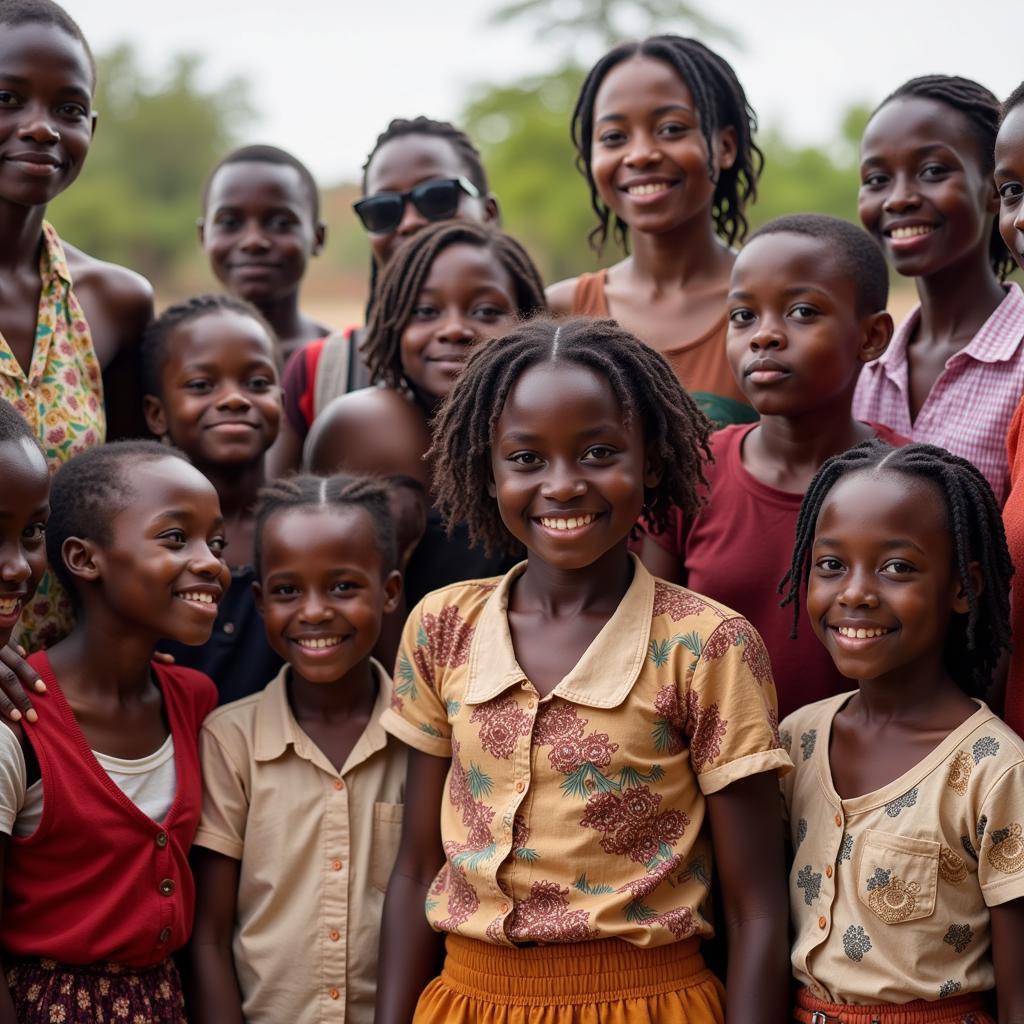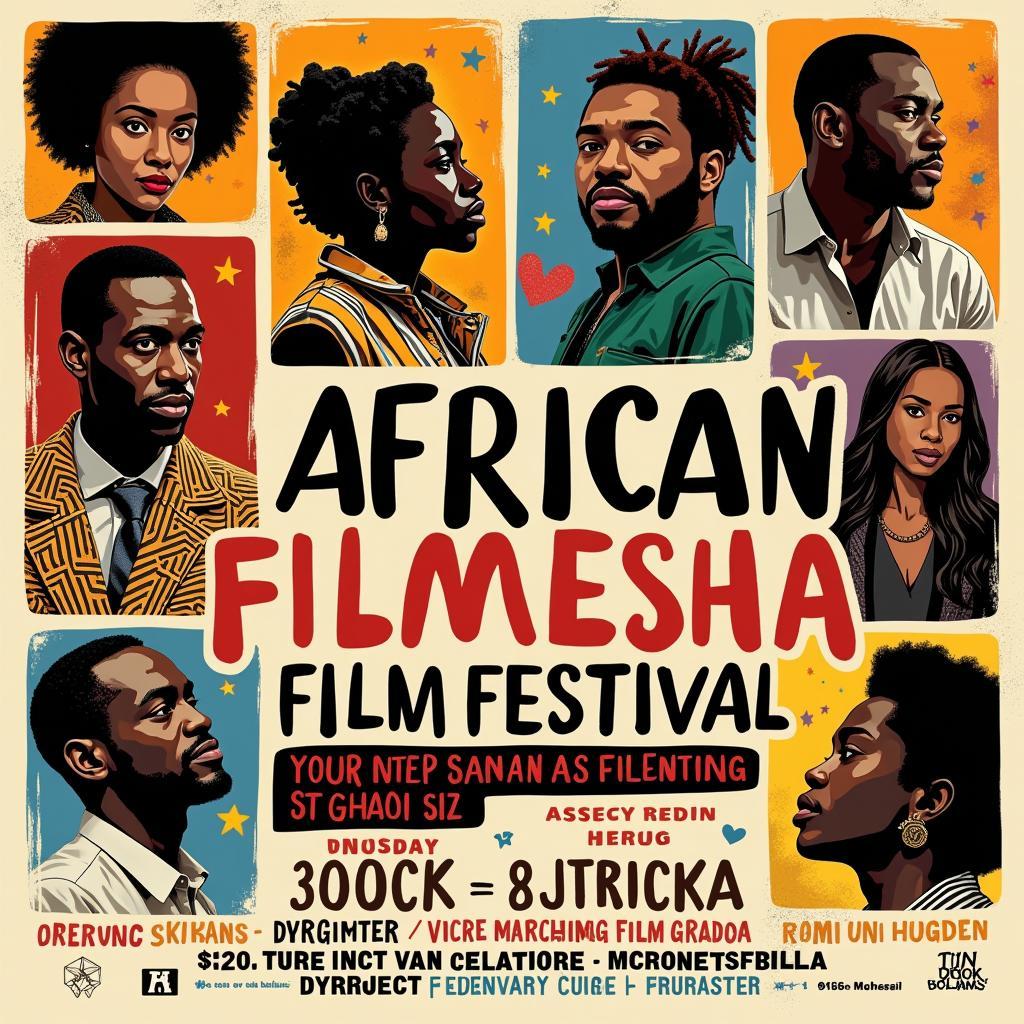The Vibrant Beat of African Hip Hop Songs
African Hip Hop Songs burst onto the global music scene, captivating audiences with their infectious energy, powerful lyrics, and unique blend of traditional and modern sounds. This genre, far from a mere imitation of its American counterpart, represents a powerful form of self-expression and social commentary, reflecting the diverse cultures, struggles, and triumphs of the African continent.
The Roots of Rhythm: Tracing the History
African hip hop emerged in the 1980s, echoing the rise of the genre in the United States. However, it quickly carved its own path, drawing heavily on indigenous musical traditions. From the polyrhythmic beats of West African drumming to the melodic flow of East African hip hop, artists infused their music with local flavors, creating a sound that resonated deeply within their communities.
Beyond the Beat: Language, Identity, and Social Change
One of the most striking features of African hip hop songs is their linguistic diversity. Artists rap in a multitude of languages, from Wolof and Swahili to French and Portuguese, reflecting the continent’s rich linguistic tapestry. This linguistic fusion adds another layer of depth to the music, allowing artists to connect with their audiences on a deeper level and preserve their cultural heritage.
Furthermore, African hip hop acts as a powerful tool for social commentary. Artists use their platform to address a wide range of issues, from poverty and corruption to HIV/AIDS and political injustice. Their lyrics often reflect the realities of daily life in their respective countries, giving voice to the marginalized and challenging societal norms.
“Hip hop in Africa isn’t just about entertainment,” says renowned Senegalese rapper and activist, Didier Awadi. “It’s a way to speak truth to power, to raise awareness about the issues affecting our communities, and to inspire change.”
A Continent Grooves: Regional Styles and Influences
Across the continent, different regions have developed their own distinct styles of hip hop, influenced by their unique cultural and musical heritages.
West Africa: Rhythmic Fusion and Political Consciousness
West African hip hop is characterized by its infectious energy and strong political messages. Senegalese artists like Youssou N’Dour and Baaba Maal, pioneers of the “mbalax” genre, blend traditional Senegalese rhythms with hip hop beats, creating a unique and captivating sound.
East Africa: Swahili Flow and Urban Beats
East African hip hop, particularly in Tanzania and Kenya, is known for its use of Swahili lyrics and its focus on urban life. Artists like Diamond Platnumz and Sauti Sol have gained international recognition for their catchy melodies and danceable beats.
Southern Africa: Kwaito, House Music, and Social Commentary
Southern African hip hop is heavily influenced by “kwaito,” a genre that emerged in post-apartheid South Africa, blending house music rhythms with African vocals. Artists like AKA, Nasty C, and Cassper Nyovest have achieved mainstream success, addressing social issues and celebrating African identity in their music.
The Global Stage: African Hip Hop’s Rise to Prominence
In recent years, African hip hop songs have gained increasing international recognition, thanks in part to the rise of streaming services and the growing popularity of world music. Artists like Burna Boy, Wizkid, and Davido have collaborated with international stars, bringing African sounds to a global audience. This global recognition has not only brought African artists greater visibility but has also opened doors for cross-cultural collaborations and musical innovation.
Looking Ahead: A Genre Poised for Continued Growth
As African hip hop continues to evolve and expand its reach, its impact on the global music scene is undeniable. With its unique blend of tradition, social commentary, and infectious rhythms, African hip hop is more than just a genre of music; it is a powerful force for cultural expression, social change, and global connection.
FAQs: Unpacking African Hip Hop
What are some popular African hip hop songs to get started with?
Check out “African Giant” by Burna Boy, “Ojuelegba” by Wizkid, and “Fall” by Davido for a taste of the diverse sounds of African hip hop. You can also explore African hip hop songs 2019 for a curated list of popular tracks from that year.
Are there any documentaries or films about African hip hop?
Yes, there are several documentaries that offer insightful explorations of African hip hop, such as “This is My Africa” and “Future Sound of Mzansi.” These films delve into the history, evolution, and cultural significance of the genre across different regions of the continent.
How can I support African hip hop artists?
You can support African hip hop artists by streaming their music on platforms like Spotify and Apple Music, attending their concerts, and purchasing their merchandise. Sharing their music with friends and family and engaging with their content on social media also helps to amplify their voices and expand their reach.
Explore Further: Deep Dive into African Music
Want to explore more of the diverse sounds of Africa? Check out our articles on African chants and the intriguing African pipit. You can also tune in to the African daily voice for news, stories, and cultural insights from across the continent. And if you’re in the mood for love, our selection of African French love songs will surely captivate your heart.
Connect with Us: Let’s Keep the Rhythm Alive
For any inquiries or assistance, feel free to reach out to our dedicated customer support team 24/7. You can contact us via phone at +255768904061, email us at kaka.mag@gmail.com, or visit our office located in Mbarali DC Mawindi, Kangaga, Tanzania.

